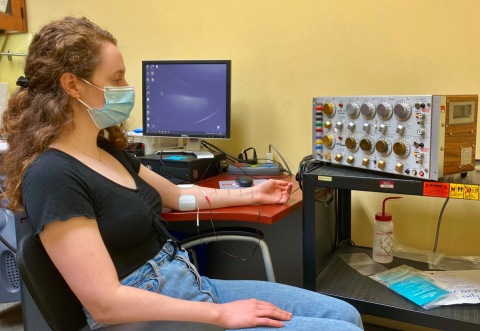A stronger placebo effect for those who believe sham medical treatments are personalized

If you believe a medical treatment was developed specifically for you, it may be more effective, especially if you want to be seen as unique, according to new research from McGill University.
In two studies, researchers in the Department of Psychology found that participants who thought a medical device that was really a placebo was personalized to their genetic makeup and physiology reported feeling less pain when using it, compared to those who believed it was a standard treatment.
The effect was even stronger for those who valued their individuality and had a high score on a personality trait called need for uniqueness. These findings challenge the belief that personalized medical treatments work solely due to their pharmacological properties, suggesting that psychological factors may also potentially play a role in their effectiveness.
The study’s insights could lead to better design of tailored therapies, prompting researchers to address the impact of placebo effects in clinical trials for precision drugs. “The number of personalized drugs on the market has doubled in the past five years,” said Dasha Sandra, lead author on the paper and recent Master of Science graduate from the Integrated Program in Neuroscience. “Understanding how a patient’s beliefs may affect personalized treatments could encourage researchers to better control for them when developing new drugs.”
With more research, these findings could pave the way to better implementation of personalized therapies. “Currently, clinicians delivering personalized treatments know little about how psychological factors can improve their patients’ outcomes,” added Mathieu Roy, Associate Professor of Psychology and the senior author of the study. “Our findings, if confirmed in clinical studies, could help clinicians harness these factors to deliver personalized treatments more effectively.”
The study “Presenting a Sham Treatment as Personalised Increases its Effectiveness in a Randomised Controlled Trial” by Dasha Sandra et al was published in eLife.

